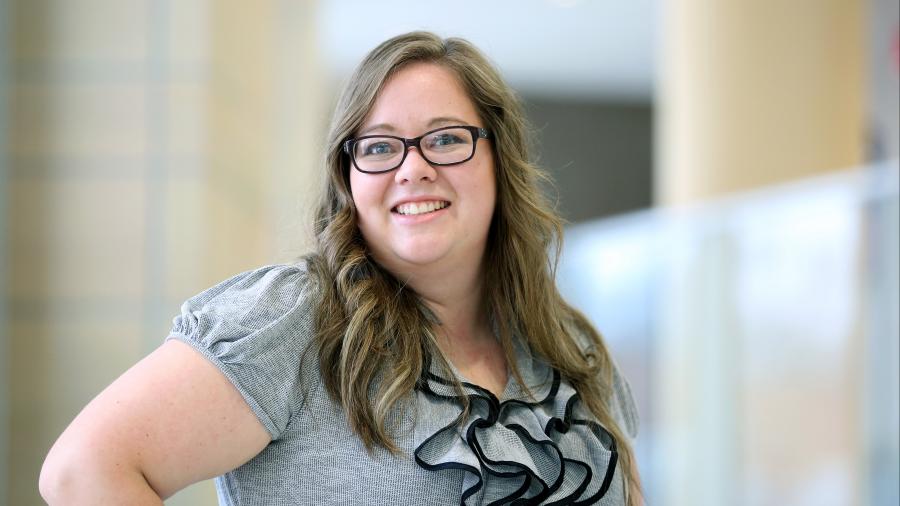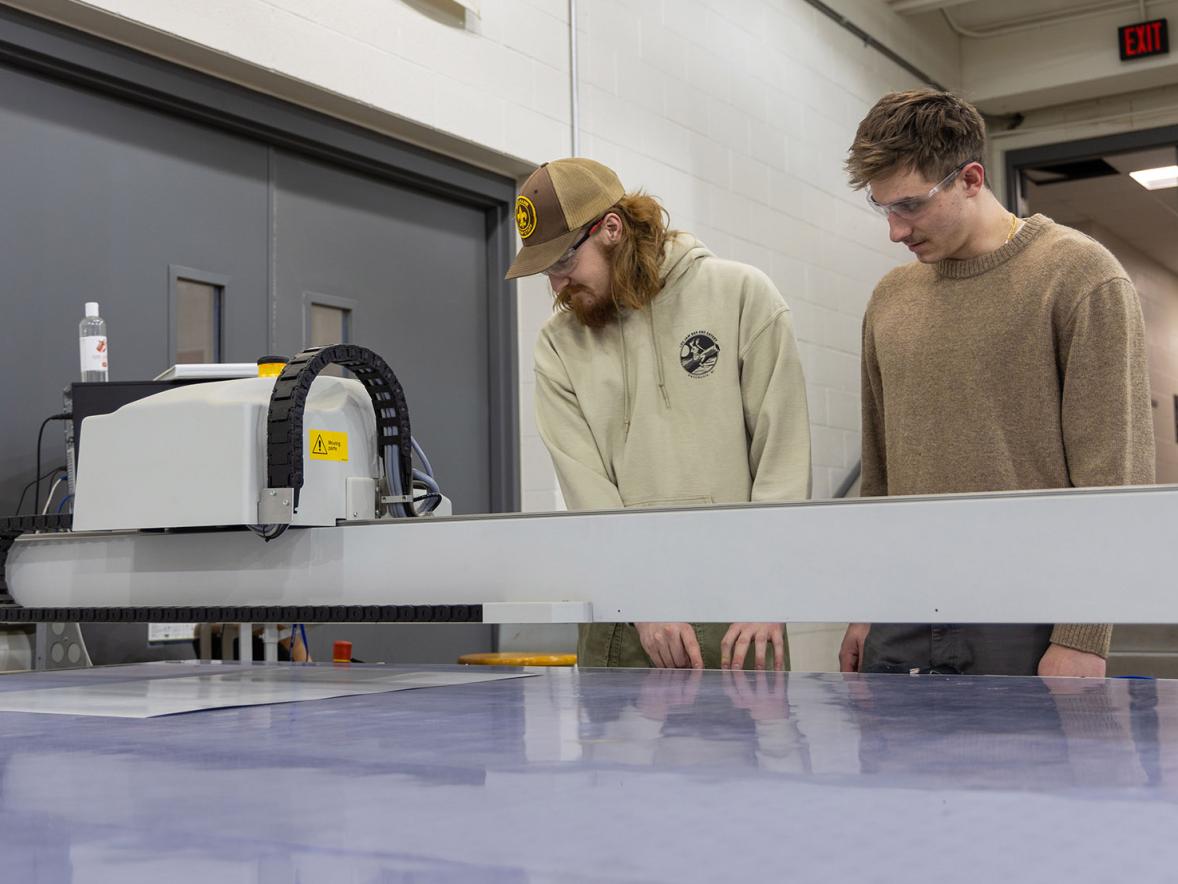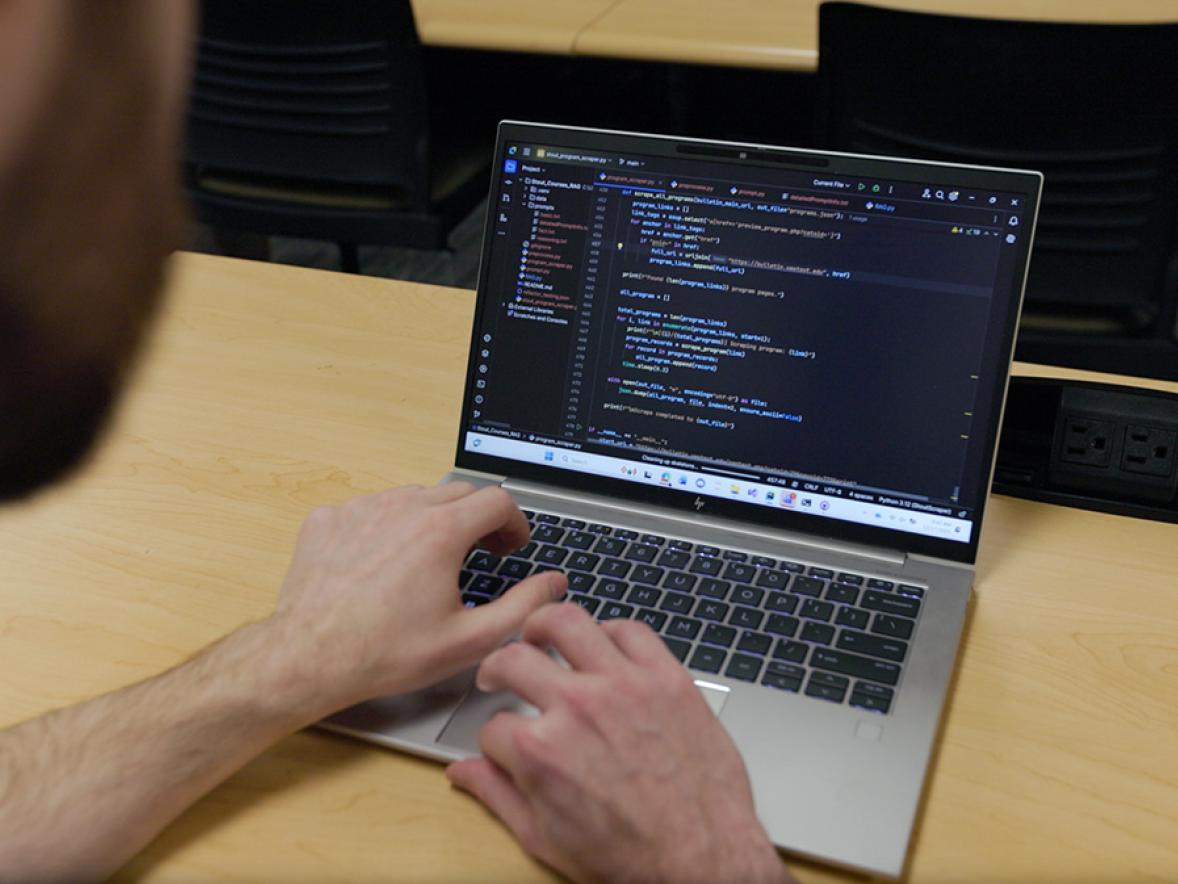
Name: Grace Sutula
Hometown: Loveland, Colo.
Major: Applied mathematics and computer science; concentration in actuarial science
Awards, honors: Chancellor’s Award
Why did you choose UW-Stout? My decision was based on the strength of the math program and the faculty members. I wanted a university that would give me a strong background in theoretical mathematics, where I would be able to learn how to apply that knowledge.
What are the biggest obstacles you faced in earning your degree? The biggest challenge was learning how to push myself rather than just skating by. In high school I was able to get through my classes with minimal effort, and after coming to UW-Stout I was encouraged to go above and beyond what was required for class.
What stands out among your college experiences? My professors stand out to me more than anything else here at UW-Stout. They encouraged me to push myself not only academically but as a person. They were always on hand to help, even if it was not directly related to class. They put in enormous amounts of time and effort into making sure that I had the best chance possible to succeed. They affected my life in more ways than one, and I am eternally grateful to them for encouragement of me and their commitment to their students.
What’s next? I will be taking a job at Fast Enterprises, a company based in Colorado. I will be in Colorado for a few weeks training and then will be headed to Olympia, Wash., to start my full-time career.
###






